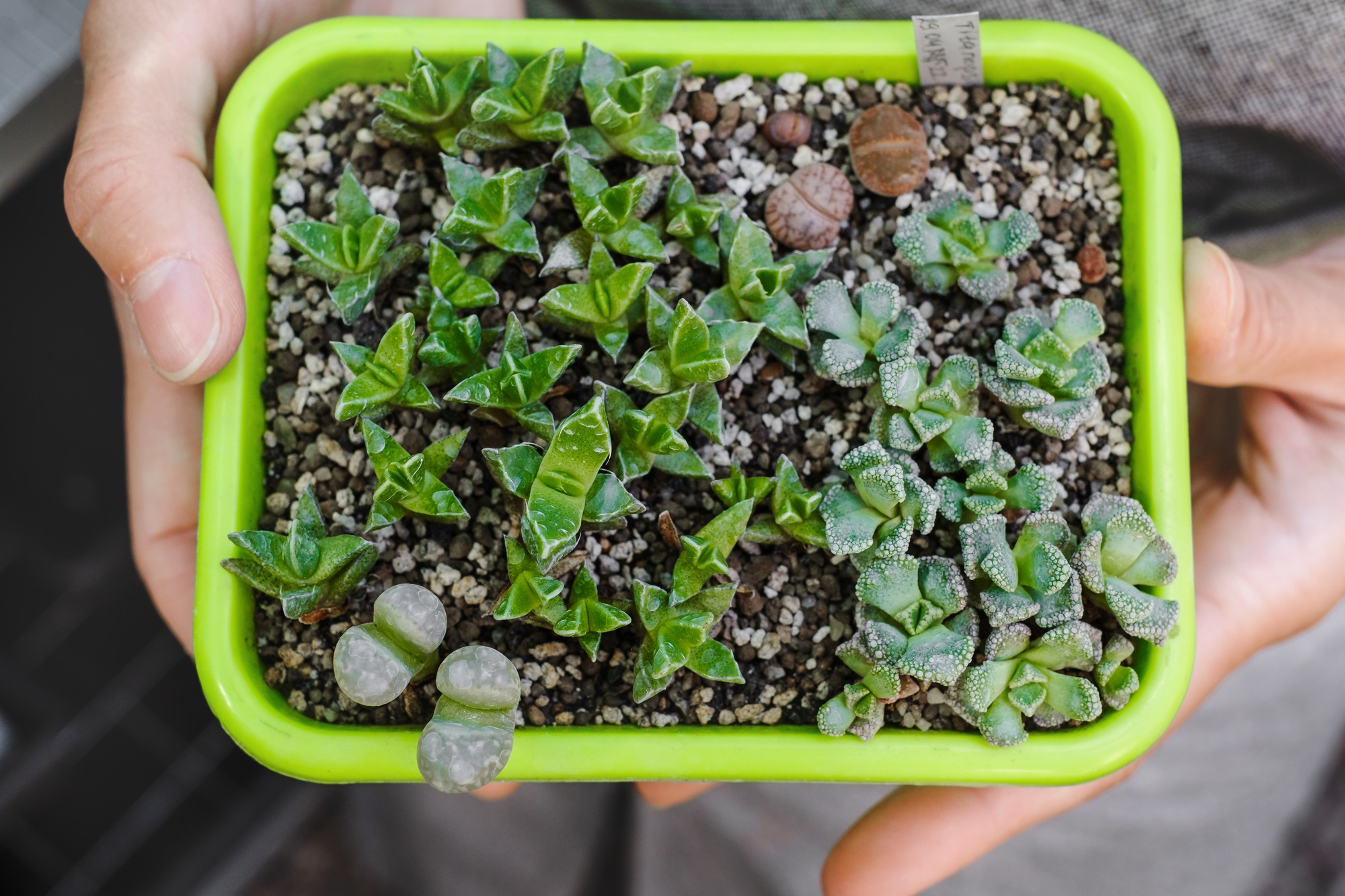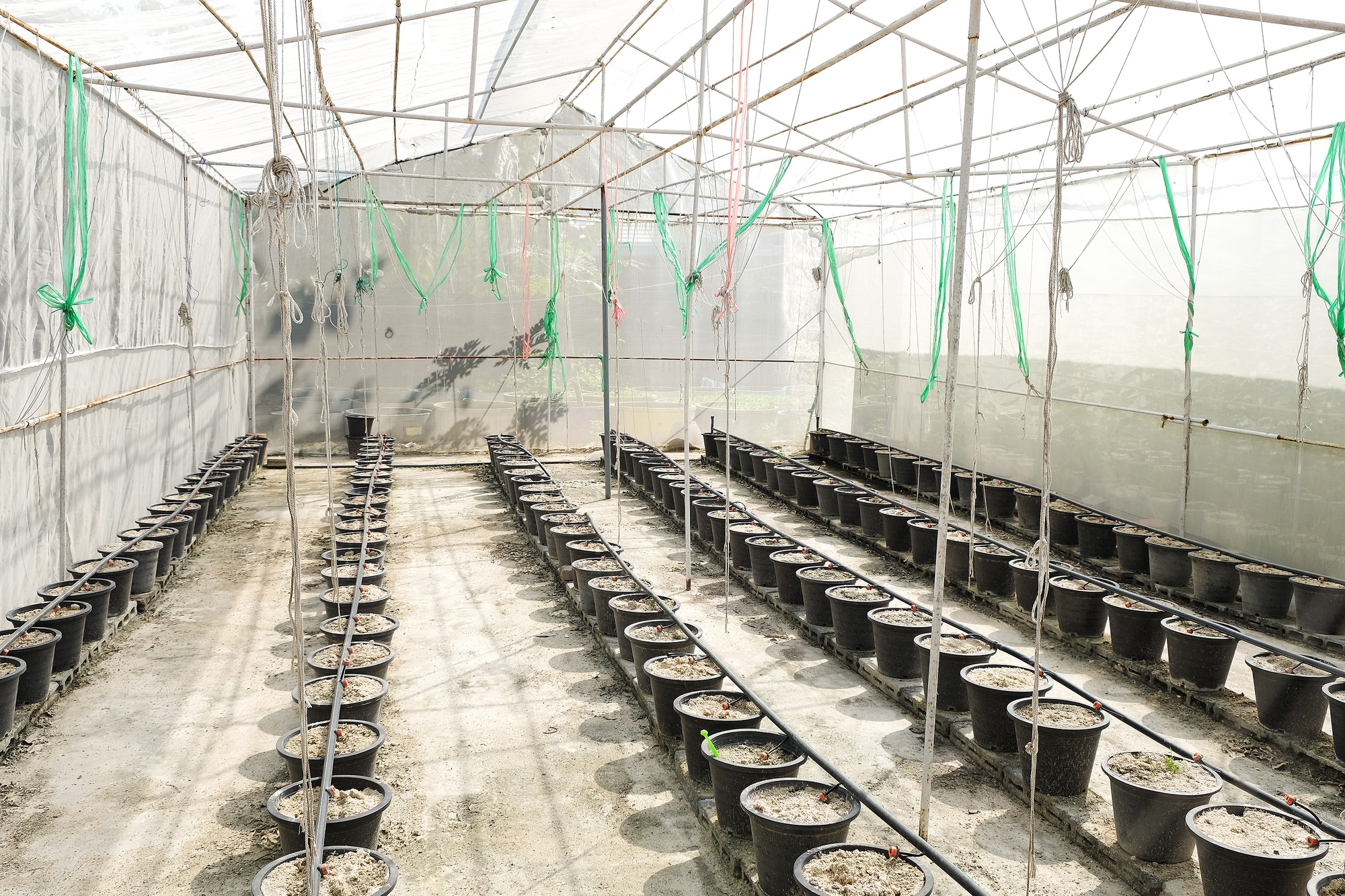Key Takeaways

- Importance of a Business Plan: A comprehensive plant nursery business plan is essential for guiding your operations, identifying challenges, and managing resources effectively.
- Understanding the Market: Conducting thorough market analysis helps identify industry trends, target demographics, and competitive landscapes, crucial for effective marketing and product offerings.
- Choosing the Right Business Structure: Selecting an appropriate ownership type (e.g., sole proprietorship, LLC) impacts liability, taxation, and operational flexibility, which are key to long-term success.
- Financial Planning: Careful assessment of startup costs and funding options—ranging from personal savings to crowdfunding—ensures a solid financial foundation for your plant nursery.
- Daily Operations Management: Establishing efficient daily workflows and inventory management systems enhances productivity and allows you to focus on business growth.
- Effective Marketing Strategies: Creating a strong brand identity and utilizing multiple sales channels, including online platforms and local outreach, maximizes customer engagement and revenue potential.
Starting a plant nursery can be a rewarding venture, blending your passion for gardening with a profitable business model. Whether you’re a seasoned horticulturist or a budding enthusiast, having a solid business plan is crucial for turning your dreams into reality. It’s not just about growing plants; it’s about understanding the market, managing resources, and building a brand that stands out.
Overview of Plant Nursery Business Plan

A solid plant nursery business plan forms the foundation for your small business, guiding every step from inception to growth. Understanding the purpose and key components of your plan ensures effective management and increased chances of success.
Purpose of the Business Plan
The purpose of your plant nursery business plan involves more than just outlining goals. It acts as a roadmap, providing clarity on your market, operational strategies, and financial projections. This document enables you to identify challenges, allocate resources efficiently, and attract potential investors. By clearly stating your objectives, you’re positioned to measure progress and adapt as necessary.
Key Components
Key components of your plant nursery business plan include:
- Executive Summary: Summarizes your business concept, highlighting unique selling points and financial outlooks.
- Market Analysis: Analyzes industry trends, target customers, and competitive landscape. Understanding these factors is crucial for effective marketing strategies.
- Organizational Structure: Details your business model, including staffing needs and management roles. Clearly defining responsibilities helps streamline operations.
- Product Line: Describes the types of plants and services offered. This section should align with market demand and capitalize on your expertise.
- Marketing Plan: Outlines strategies for promoting and selling your products. Utilize channels that resonate with your target audience, such as social media or local gardening events.
- Financial Projections: Presents budgets, sales forecasts, and funding requirements. This component aids in monitoring financial health and supports growth strategies.
By focusing on these key components, you create a comprehensive plant nursery business plan that sets your small business up for long-term success.
Market Analysis

Understanding the market is crucial when you start a plant nursery. This analysis highlights significant trends and identifies your target demographics.
Industry Trends
The global nursery and garden stores market reached a valuation of $93.7 billion in 2020, with expectations of 4.6% CAGR growth from 2021 to 2026. Within this landscape, the online plant nursery market is set to reach $36.01 billion by 2033, growing at a robust CAGR of 12.15%. Specific markets, like Auckland, show strong potential; the plant nursery market there is valued at $50 million and projected to grow to $70 million in five years, driven by increased gardening interest, heightened sustainability awareness, and a preference for locally sourced plants. Awareness of these trends is essential as you develop your business plan.
Target Customer Demographics
Your target customers typically include homeowners, landscape professionals, and gardening enthusiasts. Homeowners often seek diverse plant selections, from ornamental to edible varieties. Landscape professionals prefer wholesale deals to meet project demands. Gardening enthusiasts frequently pursue high-quality, unique plants and sustainable gardening products. Demographic factors such as age, income level, and regional interests significantly influence your marketing strategies. You can refine your offerings to cater specifically to these groups, ensuring alignment with current industry trends and customer preferences.
Business Structure

Choosing the right business structure is crucial when starting a plant nursery. Several structures suit various operational needs, each with distinct advantages and challenges.
Ownership Types
- Sole Proprietorship: You retain complete control over your plant nursery. This structure is easy to set up, but it also means you’re personally liable for all financial obligations.
- Partnership: This option allows you to share ownership and responsibilities with one or more partners. It’s beneficial for pooling resources, but disagreements can arise, impacting operations.
- Limited Liability Company (LLC): An LLC combines the benefits of a sole proprietorship and corporation. You enjoy liability protection while benefiting from pass-through taxation. This structure often suits small businesses seeking growth.
- Corporation: A corporation offers robust liability protection and may attract investors. However, it requires more regulatory oversight and is more complex to manage.
Legal Considerations
Registering your plant nursery demands attention to legal requirements.
- Business Name Registration: You must register your trade name, ensuring it’s unique and complies with local regulations.
- Licensing and Permits: Depending on your location, you may require specific permits to operate a nursery. These can encompass environmental regulations, health codes, and zoning laws.
- Insurance: Proper insurance protects your business against potential risks, such as property damage and liability claims. Consider policies tailored for nurseries, which may cover crop failure, equipment theft, and customer injuries.
- Taxes: Familiarize yourself with tax obligations, including local business taxes, sales tax on retail sales, and employment taxes for any staff you hire. Proper tax planning is essential for financial success in your small business.
By selecting the right ownership type and adhering to legal requirements, you can establish a solid foundation for your plant nursery, ensuring compliance and facilitating growth.
Startup Costs and Financing

Starting a plant nursery involves various startup costs and investment considerations. Understanding these financial aspects is essential when you create your small business plan.
Initial Investment Requirements
Initial investment requirements can significantly vary based on your nursery’s scale and location. Key categories include:
- Land Acquisition or Leasing Costs: Leasing land ranges from $1,000 to $2,500 monthly. Purchasing land typically costs between $5,000 and $100,000. Location significantly influences these costs.
- Greenhouse Construction or Purchase Costs: Constructing or purchasing a modest greenhouse can cost between $5,000 and $50,000. The structure’s size, materials, and features impact the total investment.
- Initial Inventory of Plants and Supplies: You’ll spend between $2,000 and $20,000 for your plant inventory and essential supplies. This range depends on the types of plants and quantities you plan to offer.
- Equipment and Tools for Plant Care: Depending on your needs, equipment costs can range from $1,000 to $10,000. Essential tools and equipment commonly include soil mixers, potting tables, and irrigation systems.
- Marketing and Branding Expenses: Marketing costs typically fall between $500 and $5,000. Effective branding and promotional efforts help attract customers, making this investment vital.
- Licensing and Legal Fees: Expect to pay between $200 and $3,000 for licenses and legal fees. Compliance with local regulations ensures your business operates without legal obstacles.
- Utilities Installation for Greenhouses: Installing utilities for greenhouses usually costs between $1,000 and $10,000. This step is crucial for maintaining optimal growing conditions.
Funding Options
Various funding options can help you finance your plant nursery. Consider these possibilities:
- Personal Savings: Utilizing personal savings commonly provides a straightforward funding avenue. This option minimizes debt and retains full ownership of your business.
- Bank Loans: Securing a bank loan may offer a more substantial capital infusion. Interest rates and repayment terms vary, so thorough research is necessary.
- Small Business Grants: Numerous organizations offer grants for small business initiatives. Research available grants related to agriculture or sustainability, as these may align with your nursery’s goals.
- Crowdfunding: Crowdfunding platforms allow you to present your business plan to a wider audience. Engaging potential investors or customers can generate support and capital for your nursery.
- Investors: Approach local investors who might be interested in supporting your venture. Presenting a solid business plan can attract investors looking for viable projects within the horticulture market.
Identifying the right mix of startup costs and funding options helps solidify your nursery’s financial foundation, setting the stage for long-term success.
Operations Plan

An effective operations plan is essential for your plant nursery. This plan addresses location and facilities, along with daily operations management, forming the backbone of your small business.
Location and Facilities
Choosing the right location is crucial for your plant nursery’s success. It should offer a suitable climate for the plants you cultivate, along with good accessibility for customers and suppliers. For instance, Native Bloom Nursery in Portland, Oregon, selected a site that supports a diverse inventory tailored to the local climate. Your facilities need ample space for planting, growing, and storing plants. Consider incorporating greenhouses, outdoor planting areas, and dedicated storage for equipment and supplies. The structure and ownership section of your business plan should clearly detail your premises and highlight the advantages of your chosen location.
Daily Operations Management
Daily operations management plays a vital role in ensuring smooth functionality. Develop a detailed workflow to manage tasks, including planting, watering, harvesting, and customer service. Implement a scheduling system to coordinate employee duties efficiently. Utilize inventory management tools to track stock levels of plants and supplies. Regularly assess plant health and adjust care processes as needed. By establishing streamlined daily operations, you enhance productivity and can focus on scaling your small business effectively.
Marketing Strategy

Effective marketing strategies serve as the backbone of a plant nursery business plan. Adopting a structured approach to branding, promotion, and sales channels boosts visibility and drives sales.
Branding and Promotion
Creating a strong brand identity differentiates your nursery in a competitive market. Select a memorable name and logo that reflect your business values. Develop a consistent brand voice across all platforms—including social media, website content, and promotional materials. Utilize local advertising, such as community events and farmer’s markets, to showcase your products and establish a presence.
Implement social media campaigns to engage with potential customers. Platforms like Instagram and Facebook are ideal for sharing visually appealing plant images and gardening tips. Consider customer loyalty programs that reward repeat purchases to foster long-term relationships with your clientele. Collect feedback through surveys to refine your offerings and address customer preferences.
Sales Channels
Exploring multiple sales channels enhances your nursery’s reach. Establish a retail space to showcase your plants and services, ensuring it is easy to access and enticing for customers. Online sales have become increasingly important; setting up an e-commerce platform allows customers to browse and purchase products conveniently.
Partner with local landscapers and retail plant nurseries to create wholesale opportunities. This strategy not only increases your sales volume but also aligns your business with established players in the industry. Explore delivery options for larger projects, such as landscape installations, to meet customer needs. An omnichannel approach strengthens your market position while maximizing revenue potential.
Conclusion

Starting a plant nursery can be an exciting venture that combines your passion for gardening with the potential for profitability. By developing a comprehensive business plan, you’re setting the stage for success. This plan will guide your decisions and help you navigate the challenges of the industry.
Focusing on market analysis, operational efficiency, and effective marketing strategies will enhance your nursery’s appeal to customers. Remember to choose the right business structure and secure necessary funding to ensure a solid foundation. With the right preparation and dedication, you can cultivate a thriving plant nursery that meets the needs of your community while fulfilling your entrepreneurial dreams.
Frequently Asked Questions

What is the main focus of the article about starting a plant nursery?
The article focuses on the rewarding opportunity of starting a plant nursery, combining a passion for gardening with potential profit. It emphasizes the need for a comprehensive business plan that addresses market understanding, resource management, and brand development.
Why is a business plan essential for a plant nursery?
A solid business plan serves as a roadmap for the nursery, guiding every aspect from inception to growth. It clarifies market strategies, operational plans, and financial projections while helping to identify challenges and attract investors.
What market trends are highlighted for plant nurseries?
The article notes that the global nursery market was valued at $93.7 billion in 2020, with a projected growth rate of 4.6% through 2026. The online nursery market is expected to reach $36.01 billion by 2033, highlighting significant opportunities.
How can I identify target customers for my nursery?
Understanding target customers—homeowners, landscape professionals, and gardening enthusiasts—is crucial. Their preferences and demographics should influence marketing strategies to align offerings with current industry trends and customer needs.
What business structures can I choose when starting a nursery?
The article discusses various ownership types, including sole proprietorships, partnerships, LLCs, and corporations. Each structure has distinct advantages and challenges, affecting legal, financial, and operational aspects of the nursery.
What are some startup costs associated with a plant nursery?
Initial investment costs can include land acquisition, greenhouse construction, inventory, tools, marketing expenses, licenses, and utilities. Understanding these costs is vital for establishing a strong financial foundation.
What financing options are available for starting a nursery?
Aspiring nursery owners can explore various funding options, such as personal savings, bank loans, small business grants, crowdfunding, and investors. Choosing the right mix of financing is crucial for long-term success.
How important is location for a plant nursery?
Choosing the right location is critical as it should support the climate needs of plants and ensure accessibility for customers and suppliers. An optimal site can significantly enhance business success.
What should be included in an operations plan for a nursery?
An effective operations plan should encompass daily management, inventory control, and workflow for tasks like planting and customer service. Streamlining operations enhances productivity and business scalability.
How can I effectively market my plant nursery?
Creating a strong brand identity, utilizing local advertising, social media campaigns, and establishing loyalty programs are key marketing strategies. An omnichannel approach, including e-commerce and partnerships, can broaden reach and revenue.
Image Via Envato



